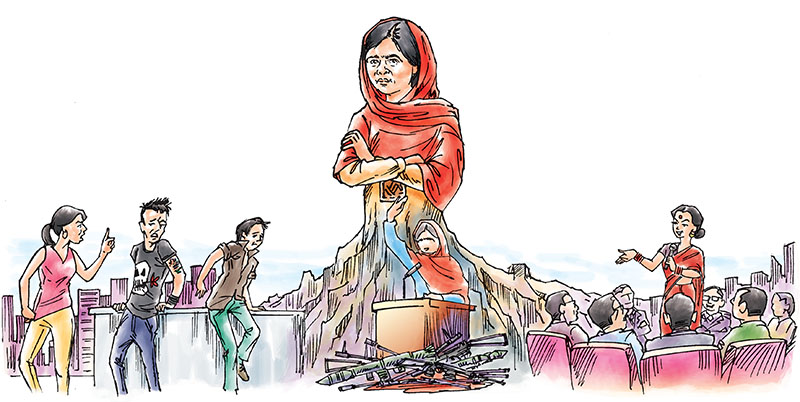Women continue to face discrimination at home, workplace
Kathmandu, March 7
While globalisation and technological advances have changed workforce demographics and brought unprecedented growth opportunities for many, opportunities are still disproportionately distributed and women, especially in developing countries, continue to face discrimination at home and at work.
In Nepal, working women face different kinds of violence, unequal pay, and social discrimination at workplace despite laws ensuring equal rights, fair wages, and social protection.
“Achieving gender equality in the world of work is imperative for sustainable development,” said Stella Tamang, vice-president of Ethnic Women Organisation. Unequal pay between men and women has reduced women’s participation in the workplace and in developmental works, which in turn has adversely affected the nation’s attempts at sustainable development, she said.
“Women do not receive the appreciation or reward they deserve for working as much, and arguably even more, than men. Most working women have to go home to more domestic work, but go unrecognised. Many even face violence at the hands of co-workers and even family members,” Tamang said.
According to a report developed by the WOREC in 2016, 34.4 per cent of women who engage in domestic work have to bear domestic violence. The report also said 28 per cent of women in agricultural sector, 14 per cent of women holding blue-collared jobs, 13 per cent of female students, 6 per cent of women in business sector, 1 per cent of female teachers, 1 per cent of women working in non-governmental organisations, 0.1 per cent of women in governmental sector, and 0.3 per cent women in social service face some form of violence at their workplace.
In the same way, a survey done by Shakti Samuha showed that more than 11 per cent of women are working without an appointment letter from their employers.
According to the UN, only 50 per cent of working age women are represented in the labour force globally, compared to 76 per cent men. The overwhelming majority of women are in the informal economy and concentrated in lower-paid occupations with little or no social protection.






